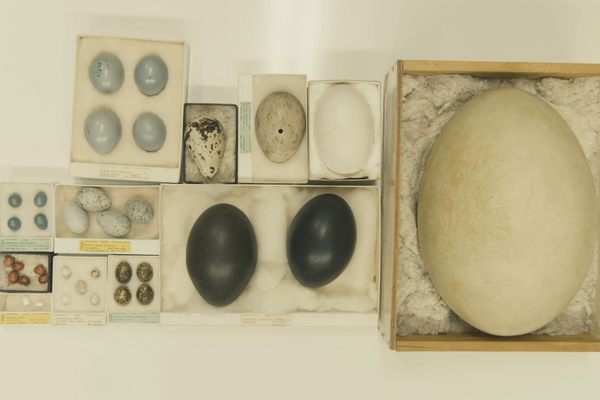World’s Largest Manta-Ray Trafficker Bust in Indonesia
 Manta ray parking bay (photo by David Sim / Wikimedia)
Manta ray parking bay (photo by David Sim / Wikimedia)
In Indonesia and Sri Lanka, manta ray populations have plummeted by 56% to 86% in recent years, according to a report by international environmental NGO WildAid. Indonesian authorities have been working to protect manta rays, which are threatened for several reasons: low reproduction rates, frequency of getting caught in fishing nets, and, over the last decade, a strong increase in being hunted. The rays are prized for their gill rakers, tiny filaments that help filter tiny bits of food out of the water, and are believed by many practitioners of Traditional Chinese Medicine to have many health benefits.
Earlier this year, Indonesia established the world’s biggest manta ray sanctuary: more than 2 million square miles of protected waters. This was based on both conservational and economic impulses —1kg of dried manta gills can fetch about $170 in the marketplace, whereas the government has estimated that a single living ray will generate about $1 million in tourist revenue over its lifetime. And the government is fighting for rays in other ways: Last month, as LiveScience reported, a trafficker was arrested in possession of 227 pounds of gills, in what is so far the largest bust of a manta trader.
Ironically, the gill rakers don’t actually seem to be part of Traditional Chinese Medicine at all. Despite claims that the gills, called peng yu sai, can do everything from purifying the blood to increasing fertility to curing chicken pox, the UK nonprofit Manta Trust has reported that no references to the gills appear in the Traditional Chinese Medicine literature or curricula, and interviews with respected practitioners have not yielded evidence to support their use. Even worse, tests done on the gills for sale in markets in Guangzhou, China, where about 99 percent of the world’s gill consumers are located, has found them to contain alarmingly high levels of arsenic, cadmium, mercury, and lead.
Hopefully the many educational campaigns around this issue, combined with governmental crackdowns on traders, will help curtail the demand for peng yu sai, in turn decreasing its profitability for traders, and ultimately helping to save these endangered creatures.










Follow us on Twitter to get the latest on the world's hidden wonders.
Like us on Facebook to get the latest on the world's hidden wonders.
Follow us on Twitter Like us on Facebook